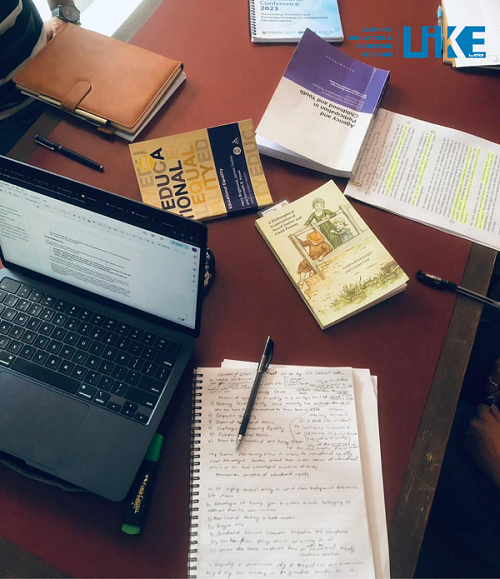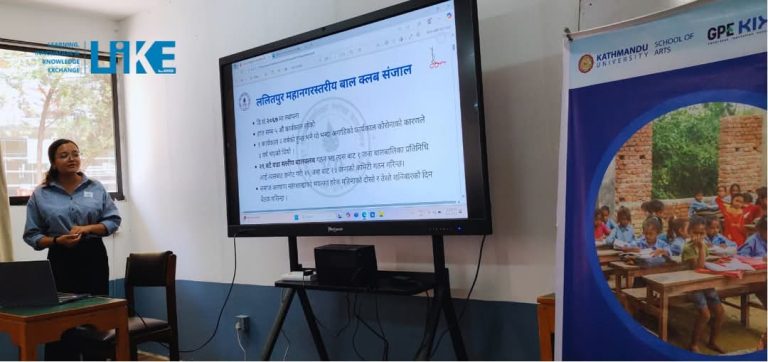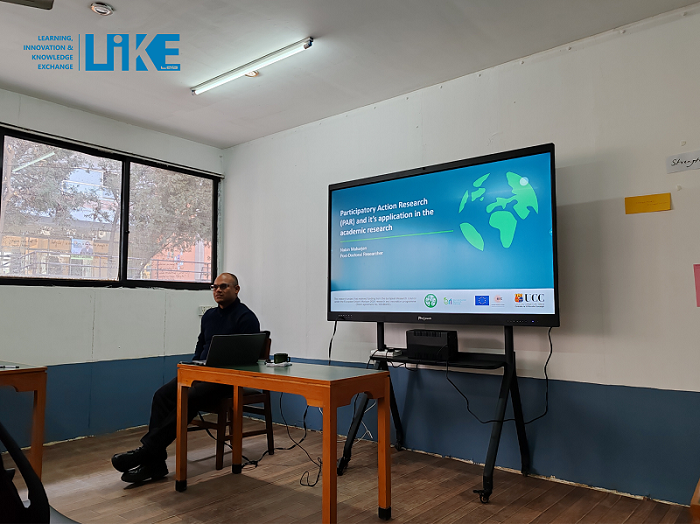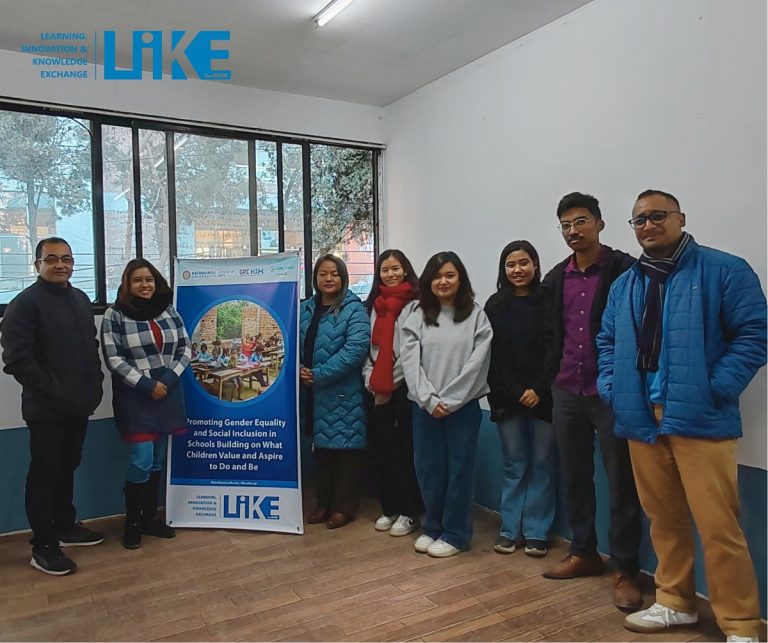
Kathmandu, Nepal – September 13, 2024 – Learning, Innovation, and Knowledge Exchange (LIKE) Lab kicked off its Learning Sessions series, with the first discussion focusing on three foundational texts in social justice, child poverty, and educational equality. The sessions are part of the lab’s ongoing mission to foster interdisciplinary dialogue around pressing global challenges in education and social justice.
The LIKE Lab team delved into the first chapters of “A Philosophical Examination of Social Justice and Child Poverty” by Gottfried Schweiger and Gunter Graf, “Agency and Participation in Childhood and Youth” edited by Caroline Sarojini Hart, Mario Biggeri, and Bernhard Babic, and “Educational Equality” by Harry Brighouse, James Tooley, and Kenneth R. Howe. The discussions set the stage for a broader examination of the intersections between child agency, poverty, and equitable education systems.
LIKE Lab’s Learning Sessions are designed to promote collaborative, intellectual exploration and build a community of thought leaders committed to addressing global education and social justice issues. These sessions are expected to inspire ongoing reflection and future action within the Lab’s projects as the team continues to draw on academic literature to inform their initiatives.
Tackling Social Justice and Child Poverty: The session began with exploring how the ‘capability approach’ can be applied to issues of social justice concerning children, particularly in the context of child poverty. While adults are entitled to capabilities—the freedom to achieve functionings—children, especially younger ones, need to have their basic functionings secured to ensure their current well-being and future well-being. The learning concludes that children in affluent societies still face injustices if their essential functionings are not met, even when overall societal wealth is high.
Agency and Participation in Childhood and Youth: The text emphasizes the agency of children and young people in shaping their futures and participating in decision-making processes. The practice of the ‘capability approach’ in educational research was highlighted during the discussion. The discussion also centered on how children can be empowered to influence policies and educational practices that affect them directly, aligning with LIKE Lab’s commitment to fostering youth leadership and engagement in social change.
Educational Equality: The discussion on educational equality is urgent due to persistent social mobility issues. Despite reforms, declining social mobility and unequal access to professional careers highlight the gap between different socio-economic classes in the UK. Similar challenges exist in the US, influenced by neo-liberal policies favoring market solutions over government intervention. Key debates focus on whether educational systems should prioritize meritocracy or address the needs of the least advantaged. The volume suggests that improving early education and re-evaluating school models could help address these inequalities and enhance social mobility.
Email like@kusoa.edu.np or register HERE for further details on upcoming sessions and how to participate in their mission of knowledge sharing and equity-driven research.
For more information, visit https://like.edu.np/



